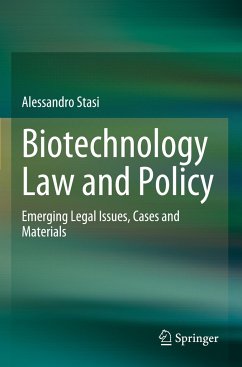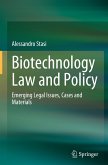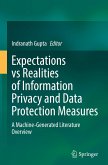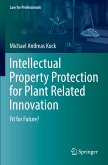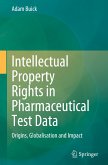This book covers an extensive range of issues raised by biotechnological advancements from a regulatory perspective. Written in a clear and readable style, its main objective is to give readers an idea of the relationship between biotechnology and law. Biotechnology advancements and their ethical, moral, economic, and social implications in different fields and the consequential normative demands on the law are crucial to this book. The chapters cover a multitude of themes and some of the most important legal issues arising in relation to biotechnology, including the historical development of a legal framework sufficient to protect public safety, the current biotechnology regulatory system, and the rules directing the primary agencies that regulate the products of biotechnology, namely the US Food and Drug Administration, the US Department of Agriculture, and the US Environmental Protection Agency, patents and IP rights in biotechnology, the regulation of human genome editingand its impact on health research, law and emerging genome editing technologies from recombinant DNA to CRISPR/Cas9, the development of legal principles to protect property rights in the human body and allow the efficient use of human tissue, organs, DNA, and cell-lines in medical research, and legal issues arising from the use of genetic engineered plants and animals.
Presenting arguments that have been drawn from careful examination of various international documents and decisions made by legal institutions and judicial bodies, this book would be a valuable read for practitioners as well as academics of biotechnology law.
Presenting arguments that have been drawn from careful examination of various international documents and decisions made by legal institutions and judicial bodies, this book would be a valuable read for practitioners as well as academics of biotechnology law.

